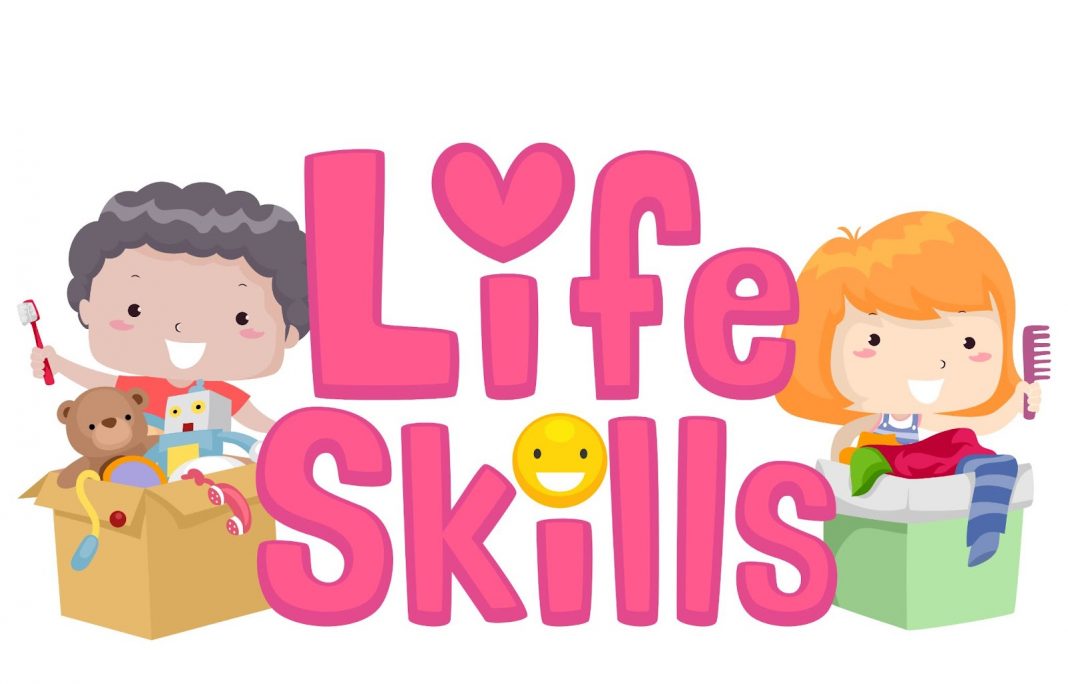In today’s rapidly changing world, children face a plethora of challenges. From navigating the complexities of technology to understanding their role in a globalized society, the demands on the younger generation are immense. While traditional education equips them with academic knowledge, there’s a growing recognition of the importance of life skills activities. These skills, which encompass psychosocial competencies and interpersonal abilities, empower children to make informed decisions, solve problems, think critically, and communicate effectively.
Math & ELA | PreK To Grade 5
Kids see fun.
You see real learning outcomes.
Watch your kids fall in love with math & reading through our scientifically designed curriculum.
Parents, try for free Teachers, use for free
A study from the Clute Institute emphasizes the significance of life skills education, highlighting its role in addressing various emerging issues faced by adolescents, such as global warming, poverty, and personal challenges like alcoholism or drug abuse. By integrating life skills into our children’s education, we not only prepare them for academic success but also equip them with the tools needed to survive and thrive in life.
In this blog, we’ll delve into some of the best life skills activities that can be seamlessly incorporated into a child’s daily routine, ensuring they are well-prepared to face the world with confidence and resilience.
Related Reading: Best Positive Affirmations for Kids to Improve Confidence
The Importance of Teaching Life Skills to Kids

Every parent dreams of raising a capable and independent child. Life skills activities for kids are the stepping stones to achieving this dream. Let’s see why is it so important:
- Preparation for Real Life: Just like we teach our kids to tie their shoes or brush their teeth, life skills activities for kids prepare them for bigger tasks in the real world. These aren’t just tasks; they fortify kids for all sorts of odds.
- Boosts Confidence: When kids learn basic life skills, they feel proud. Imagine the smile on their face when they make a sandwich on their own or fix a toy. It’s about more than the task – it’s the feeling of “I did it!”
- Teaches Responsibility: Life skills for kids aren’t just about doing things. They’re about understanding why we do them. When kids learn to clean up after playing or save some pocket money, they’re learning responsibility.
- Safety and Independence: Knowing basic first aid or how to read a sign can keep them safe. As they grow, these skills mean they won’t always need to rely on adults.
- Building Strong Foundations: Think of life skills as the roots of a tree. The stronger and deeper they are, the taller and healthier the tree will grow. When you teach your children these skills early on, you’re giving them strong roots.
- Better Decision Making: When kids practice life skills, they’re also learning to think, decide, and choose. Should I spend my allowance now or save it? Should I finish my homework first or play? These small decisions prepare them to make bigger ones later.
In short, life skills are more than just activities. They’re lessons for life, shaping our kids into confident, responsible, and independent adults. Every time you teach a new skill, you’re giving them a gift that lasts a lifetime.
15 Life Skill Activities for Kids
Diving into the heart of our discussion, let’s explore a range of life skills activities that can be easily integrated into a child’s daily life.
1. Cooking Basics

Introducing kids to the kitchen is one of the easy things to teach that can have lasting benefits. Start with simple recipes they can try, like making a sandwich or a fruit salad. While they’re at it, emphasize the importance of safety, like staying away from hot surfaces, and hygiene, like washing hands before cooking.
Why this is important: Cooking not only equips kids with daily living skills but also instills a sense of independence. They learn the value of nutrition and the joy of creating something with their own hands.
Related Reading: Best & Fun Preschoolers Cooking Activities With Recipe
2. Budgeting and Money Management

Transform your living room into a mini-marketplace! Engage in activities like playing store or bank, where they can buy, sell, or save. This hands-on approach helps them grasp the concept of money, its value, and how to manage it.
Why this is important: Teaching life skills related to money early on helps children understand the importance of saving, spending wisely, and making informed decisions. It lays the foundation for financial literacy.
3. Basic First Aid

Accidents happen, especially with active kids around. Equip them with basic knowledge, like treating minor cuts or bruises and the correct way to apply a bandage. Always stress the importance of seeking adult help for bigger injuries.
Why this is important: Basic first aid is one of the essential life skills to teach kids. It ensures they can respond promptly to minor injuries, promoting safety and awareness of their own well-being.
4. Gardening
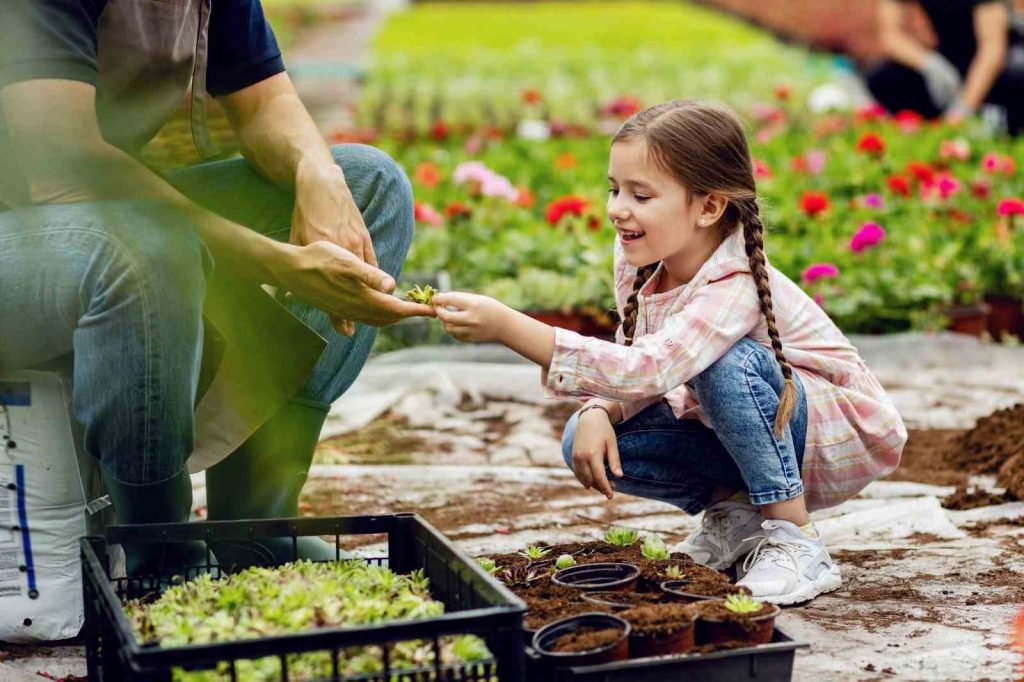
Gardening is more than just a hobby; it’s a lesson in patience and responsibility. Start with planting a seed, nurturing it, and watching it grow. It’s a tangible way for kids, especially life skills for preschoolers, to see the results of their care and effort.
Why this is important: Gardening teaches children about the environment, the importance of nurturing, and the rewards of patience. It also connects them to nature, fostering a sense of respect for the world and nature around them.
Related Reading: How to Make Gardening With Children Fun and Educational
5. Time Management

Time is a valuable resource, and it’s never too early to learn how to manage it. Introduce them to using timers for tasks, like reading or cleaning up. Encourage creating simple schedules, perhaps for their after-school activities.
Why this is important: Time management is a cornerstone in teaching life skills. It helps kids prioritize, plan, and make the most of their day. As they grow, this skill becomes crucial in balancing academics, hobbies, and relaxation.
6. Cleaning and Organization

A tidy space often leads to a tidy mind. Introduce kids to the world of cleaning by assigning them simple chores, like making their bed or putting away toys. Encourage them to take pride in organizing their own space, be it their study desk or toy shelf.
Why this is important: Cleaning and organization are functional life skills activities that instill discipline, responsibility, and a sense of accomplishment. They learn the importance of maintaining a clean environment for health and well-being.
7. Creating a Grocery list

You can engage your child in meal planning discussions to identify needed ingredients, fostering awareness of the family’s food requirements. Introduce a simple checklist format, encouraging them to write independently, enhancing organizational and literacy skills.
Why this is important: Creating a grocery list instills a sense of responsibility and organization in a child, teaching them valuable life skills while promoting healthy food choices. It also enhances their understanding of budgeting and planning, fostering independence in daily tasks.
8. Problem Solving
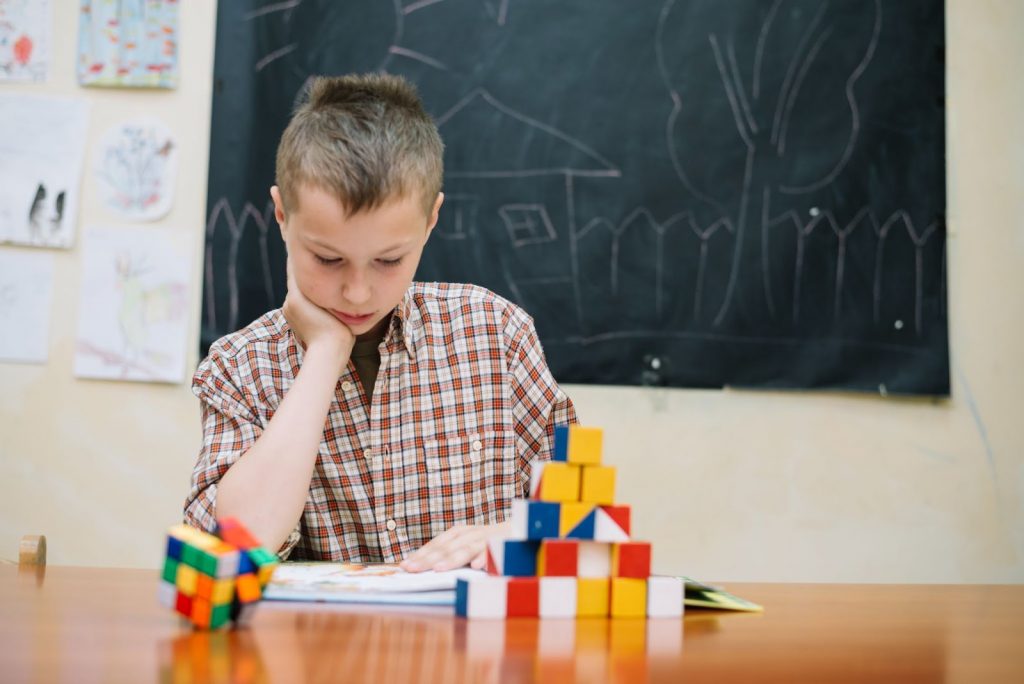
Challenges are a part of life, and it’s essential to equip kids with the tools to tackle them. Introduce them to puzzles and strategy games that stimulate their minds. Role-play difficult situations, allowing them to think of solutions and alternatives.
Why this is important: Problem-solving is among the top life skills activities for students. It encourages critical thinking, creativity, and resilience. Kids learn that challenges are opportunities for growth and innovation.
9. Basic Sewing

While it might seem old-fashioned, sewing is a handy skill. Start with simple tasks like buttoning or making a basic stitch. Emphasize the importance of careful handling, especially when using needles.
Why this is important: Sewing is not just about mending clothes; it’s one of the things to teach kids about self-reliance and precision. It also fosters creativity, as they can create or customize their own clothing or accessories.
10. Navigational Skills
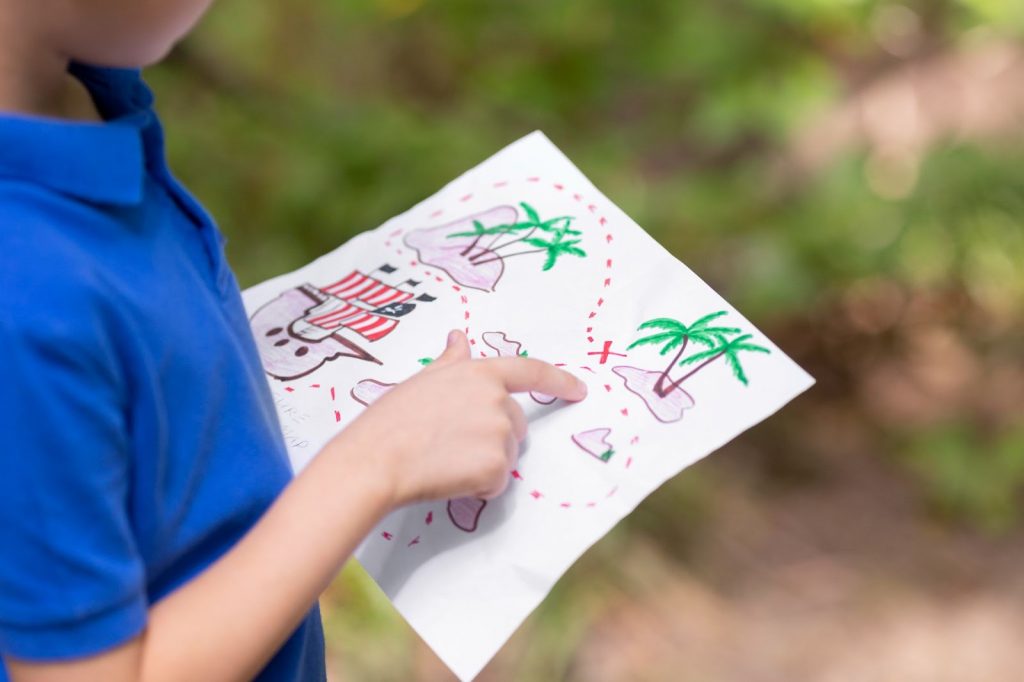
In this digital age, basic navigation is still a valuable skill. Introduce kids to reading simple maps, maybe during a family outing. Organize treasure hunts in your backyard or park, where they follow clues and directions.
Why this is important: Navigational skills enhance spatial awareness and observational abilities. It ensures kids are not overly dependent on technology and can find their way in unfamiliar settings, boosting their confidence and sense of adventure.
11. Laundry Basics

Laundry isn’t just about cleaning clothes; it’s a lesson in responsibility and care. Teach kids the basics, like sorting clothes by color or fabric and folding them neatly. Make them familiar with care labels, explaining what each symbol means.
Why this is important: Mastering laundry basics is part of daily living skills activities that promote self-reliance. Kids learn to take care of their belongings and understand the importance of maintaining them for longevity.
12. Etiquette and Manners
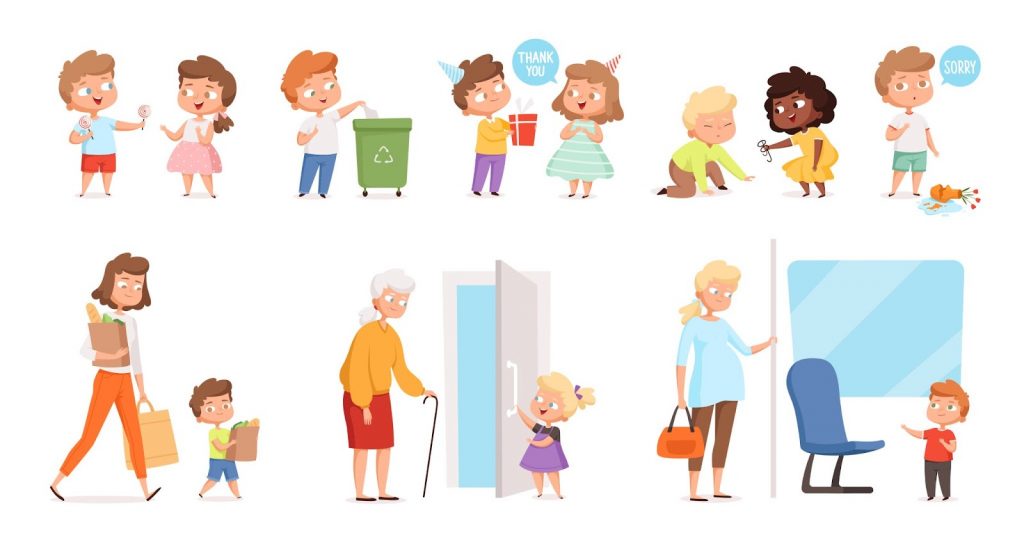
Good manners go a long way in building strong relationships. Engage kids in role-playing social situations, like meeting someone new or attending a dinner. Emphasize the importance of simple gestures like saying ‘please’ and ‘thank you’.
Why this is important: Etiquette and manners are on the list of life skills that form the foundation of social interactions. They help kids navigate various situations gracefully, ensuring they leave a positive impression.
13. Basic Home Repairs
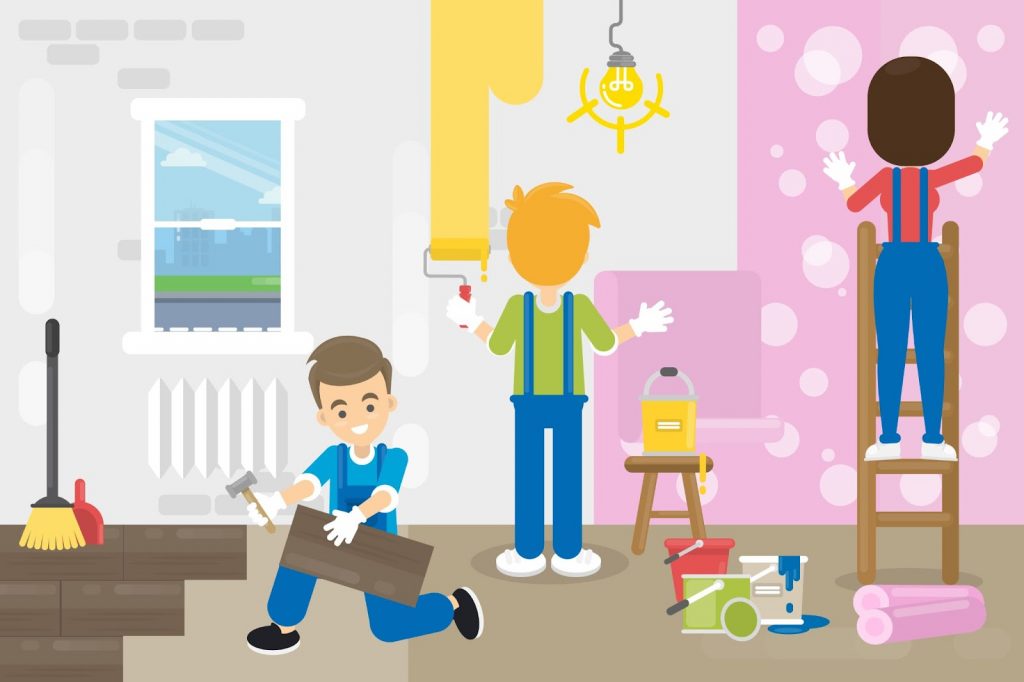
Equip kids with the knowledge to handle minor home repairs. Under supervision, let them use basic tools, teaching them to fix a loose screw or hammer a nail. Safety first, always ensure they wear protective gear if needed.
Why this is important: Basic home repairs are practical life skills projects that instill a sense of accomplishment and independence. Kids learn the value of maintaining their living space and gain confidence in their ability to handle minor challenges.
14. Road Crossing
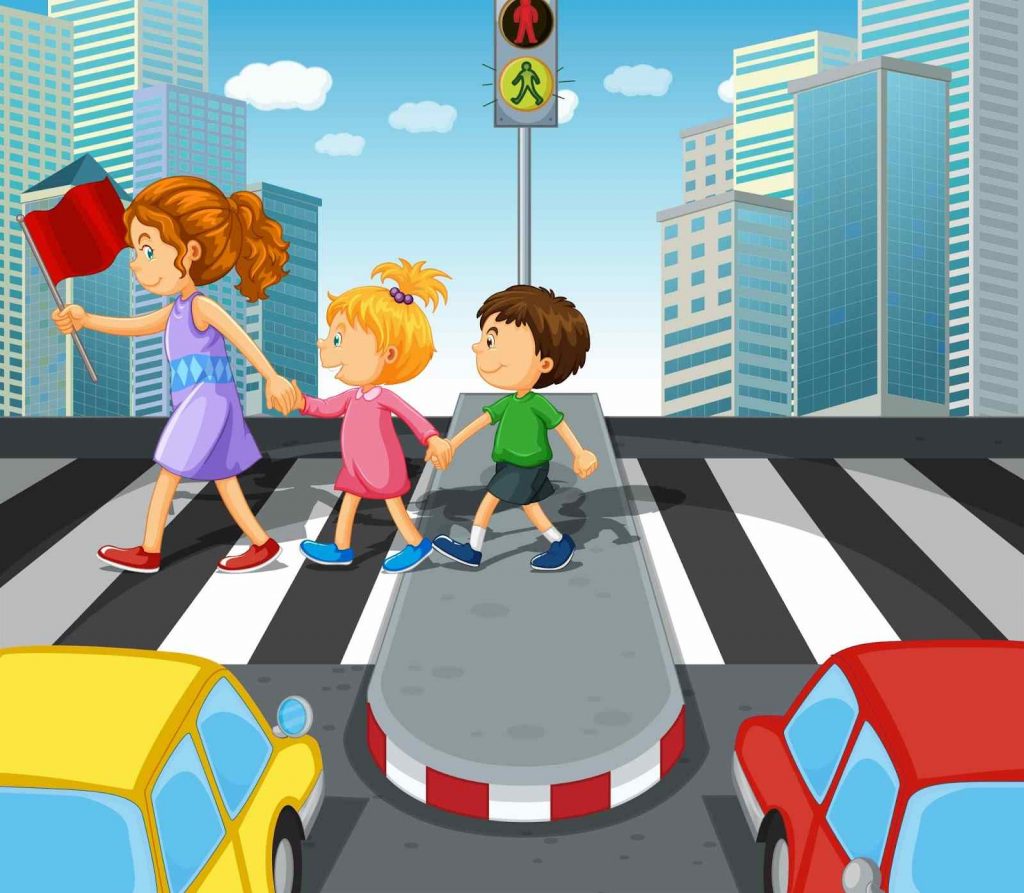
Teaching kids to cross roads is an important life skill that every child has to learn eventually. Instructions like crossing the road only on zebra crossing and only when the traffic stops, equips children early on with this necessary skill, ensuring their safety in urban environments.
Why this is important: It cultivates a lifelong understanding of traffic rules and fosters a safer community for all.
15. Emotional Self-regulation
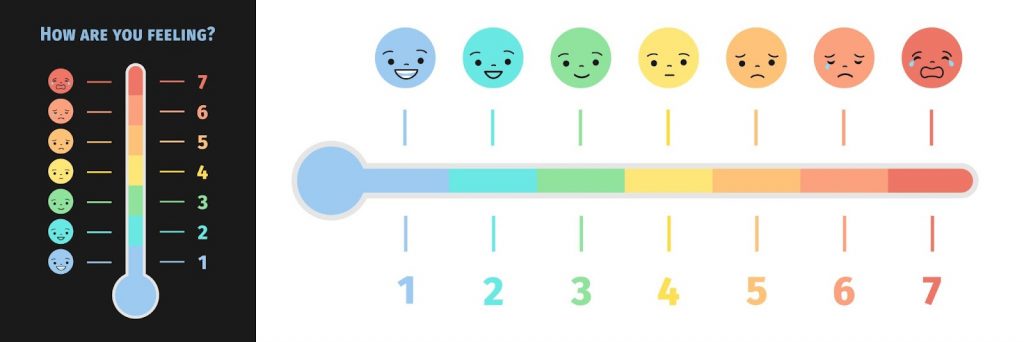
Emotions can be overwhelming, especially for young minds. Introduce them to simple breathing exercises to calm down. Create a safe space where they can identify and discuss their emotions, understanding what triggers them and how to handle them.
Why this is important: Emotional self-regulation is a cornerstone in the list of life skills that ensures mental well-being. Kids learn to understand and manage their emotions, leading to healthier relationships and a balanced approach to life’s ups and downs.
Related Reading: Calming Strategies for Kids Every Parent Should Know
Conclusion
In wrapping up, equipping our children with life skills is as crucial as academic knowledge. These skills not only prepare them for real-world challenges but also foster confidence, responsibility, and independence. From cooking basics to emotional self-regulation, each skill plays a pivotal role in shaping a well-rounded individual. As parents and educators, our role is to ensure that these lessons are imparted in a fun, engaging, and meaningful manner. Remember, every life skill you teach today is a stepping stone to a brighter, more resilient future for your child.
Related Reading: How To Teach Social Skills To Kids – 8 Ways
Frequently Asked Questions (FAQs)
Why start teaching life skills at such a young age?
Starting early helps kids internalize these skills, making them their second nature. It also boosts their confidence and prepares them for future challenges.
Are all these skills suitable for preschoolers?
While some skills are great for preschoolers, like basic etiquette, others might be better suited for slightly older kids. Always consider the child’s age and maturity level before introducing him with any activity.
How can I motivate my child if they're resistant to learning these skills?
Make the learning process fun and interactive. Use games, rewards, or storytelling to spark their interest and show them the real-world benefits of each skill.

















